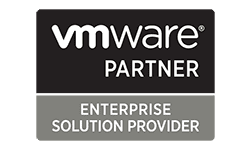Turning Data into Decision: The Power of Enterprise Data Science
The Transformative Impact of Data Science in Business Operations
Kelsey Young, Copywriter and Media Specialist
6 Min Read

Turn Data Into Decisions: Driving Business Success with Enterprise Data Science
The ability to harness data effectively can make or break an organization. Enterprise data science has the transformative potential to drive strategic decisions, optimize operations, and create competitive advantages. Understanding this power and integrating it into your operations is key to staying ahead.
What is Enterprise Data Science?
Enterprise data science is the practice of leveraging data science methodologies and tools within a business context. It involves the collection, processing, analysis, and interpretation of large volumes of data to uncover insights and support business objectives. This data-driven approach enables businesses to identify trends, anticipate customer needs, and make informed decisions that are rooted in evidence rather than intuition.
Core Concepts and Key Components
At the heart of enterprise data science are several core concepts:
- Data Science: This interdisciplinary field combines statistics, computer science, and domain expertise to extract knowledge from data. By turning raw data into actionable insights, data science helps businesses solve complex problems, improve processes, and innovate in ways that were previously unimaginable.
- Big Data: Big data refers to datasets that are too large or complex for traditional data-processing tools to handle. Managing big data effectively is crucial for uncovering hidden patterns, correlations, and trends that can drive strategic business decisions and foster innovation.
- Machine Learning: A key component of data science, machine learning involves creating algorithms that enable systems to learn from data and improve their performance over time. This technology powers everything from predictive analytics to personalized customer experiences, making it an essential tool for businesses aiming to stay competitive.
- Artificial Intelligence (AI): AI extends beyond machine learning to encompass a wide range of techniques that allow machines to simulate human intelligence. In the context of enterprise data science, AI can automate routine tasks, provide real-time insights, and even offer decision-making support in complex scenarios.
Successful enterprise data science relies on several key components:
- Data Collection: Gathering data from diverse sources, including databases, IoT devices, social media, and more, ensures a comprehensive understanding of the business environment. This step is critical for feeding accurate and relevant information into data models.
- Data Cleaning: Ensuring data accuracy involves handling missing values, duplicates, and errors. Clean, high-quality data is the foundation of reliable analysis and decision-making, preventing costly mistakes and improving the overall efficiency of data-driven processes.
- Data Analysis: Data analysis involves using statistical and computational methods to explore data and discover patterns. This process turns raw data into valuable insights that can guide strategic decisions, optimize operations, and drive innovation.
- Data Visualization: Presenting data findings in visual formats like charts, graphs, and dashboards makes complex information more accessible and understandable. Effective visualization helps stakeholders quickly grasp key insights, facilitating faster and more informed decision-making.
Tools and Technologies
To deliver cutting-edge solutions, effective tools and technologies are essential:
- Programming Languages: Python, R, and SQL are the backbone of data science, enabling the manipulation, analysis, and visualization of data. These languages provide the flexibility and power needed to tackle a wide range of data science tasks, from simple data wrangling to complex machine learning models.
- Data Processing Frameworks: Tools like Apache Hadoop and Apache Spark are designed to handle big data by distributing processing across multiple machines. These frameworks allow businesses to process large datasets quickly and efficiently, unlocking the potential of big data for insights and innovation.
- Machine Learning Libraries: Libraries such as scikit-learn, TensorFlow, and PyTorch provide pre-built functions and algorithms that simplify the development of machine learning models. These tools accelerate the process of building, training, and deploying models, enabling businesses to integrate machine learning into their operations more effectively.
- Visualization Tools: Tableau, Power BI, and matplotlib are essential for creating compelling visual representations of data. These tools allow businesses to present complex data in a way that is easy to understand, making it easier to communicate insights to stakeholders and drive data-informed decisions.
Techniques and Algorithms
The field encompasses a range of data science techniques and algorithms:
- Regression Analysis: This technique is used for predicting continuous outcomes based on historical data. For example, regression analysis can help businesses forecast sales, predict customer behavior, or optimize pricing strategies, leading to more accurate and profitable decision-making.
- Classification: Classification involves assigning data into predefined categories based on certain characteristics. This technique is commonly used in customer segmentation, fraud detection, and risk assessment, helping businesses tailor their strategies to specific groups and mitigate potential risks.
- Clustering: Clustering groups similar data points together, making it easier to identify patterns and relationships within large datasets. This technique is useful for market segmentation, customer profiling, and discovering new business opportunities based on emerging trends.
- Natural Language Processing (NLP): NLP is a subfield of AI focused on analyzing and understanding human language. In enterprise data science, NLP can be used to analyze customer feedback, automate content generation, and improve communication with customers through chatbots and virtual assistants.
Transforming Business with Data Science
Enterprise data science finds application in various areas to drive growth and efficiency:
- Customer Analytics: Understanding customer behavior and preferences allows businesses to enhance their marketing strategies, improve customer satisfaction, and increase loyalty. By analyzing customer data, companies can create personalized experiences that resonate with their audience and drive higher engagement.
- Operational Efficiency: Data science can streamline operations by identifying inefficiencies, predicting maintenance needs, and optimizing supply chains. This leads to cost savings, reduced downtime, and improved productivity, giving businesses a significant competitive advantage.
- Risk Management: Predictive modeling and anomaly detection help businesses identify potential risks before they become critical issues. By proactively managing risks, companies can avoid costly disruptions and maintain a stable operational environment.
- Product Development: Data-driven insights can guide the innovation process, helping businesses develop products that meet customer needs and stay ahead of market trends. By leveraging data science, companies can reduce time-to-market, increase product success rates, and drive growth through innovation.
Strategic Importance
Integrating data science into your business operations helps you achieve:
- Data-Driven Decision Making: Making informed decisions based on data rather than intuition reduces uncertainty and increases the likelihood of success. Data-driven decision-making enables businesses to act confidently and swiftly in response to market changes, driving better outcomes across the board.
- Competitive Advantage: Leveraging data science provides a market edge by enabling businesses to innovate faster, optimize operations, and better understand their customers. Companies that embrace data science are better positioned to outmaneuver competitors and capture new opportunities.
- Scalability: Implementing scalable data solutions allows businesses to handle growing data volumes and complexity as they expand. Scalable data science strategies ensure that companies can continue to derive value from their data as their operations evolve and grow.
Overcoming Challenges
Key challenges in data science include:
- Data Privacy and Security: Protecting data and ensuring it is used ethically is critical in maintaining customer trust and compliance with regulations. Businesses must implement robust data governance policies and invest in secure infrastructure to safeguard sensitive information.
- Data Quality: Maintaining high-quality, accurate data is essential for reliable analysis and decision-making. Poor data quality can lead to incorrect insights and costly mistakes, so businesses must prioritize data cleansing and validation processes.
- Integration: Seamlessly integrating data science workflows with existing business processes can be challenging but is crucial for maximizing the value of data-driven insights. Businesses must ensure that data science initiatives are aligned with their overall strategy and operational goals.
- Talent Acquisition: Finding skilled data scientists and analysts can be difficult, but having the right talent is key to successfully implementing data science initiatives. Companies should invest in building strong data science teams and fostering a culture of continuous learning and innovation.
Conclusion
Enterprise data science is not just a buzzword; it’s a transformative approach that can revolutionize your business operations. By turning data into actionable insights, you can make smarter decisions, optimize processes, and stay ahead of the competition. Now is the time to harness the power of data science and drive your business forward.




